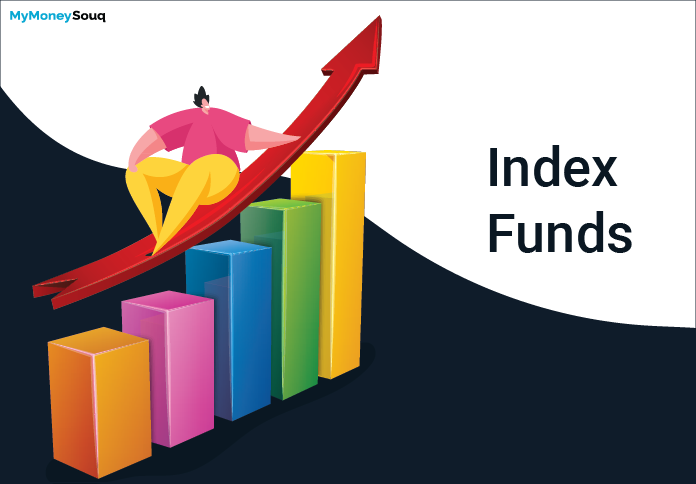Index funds are also known as index tracker, it is a type of mutual fund that is designed to develop through a set of regulations. Index funds help the investor and funds can be tracked in a group of investments. Index funds are the pool of funds that are invested in stock market indices like NIFTY, SENSEX, NSE and others.
The fund manager invests in the pool capital market in the securities. This process of investment continues throughout the period. Equity index funds are the common investment types that are invested by investors throughout the world. These stocks have the same characteristics as the rate of profit, value, and others. The great advantage of index funds is that it takes very little time for management and analysis in comparison to other types of investment vehicles.
How do Index funds operate?
Index funds are equivalent to the equity funds. The stock gets invested in an index which is in NIFTY index and as per the guidelines according to the UAE stock market the fund will have 50 stocks which are in the portfolio. The fund will have 50 stocks which are present in the portfolio. Equity and equity-based stocks are included in the bonds and this is the reason that index funds are most famous. Fund managers who are managing the funds make sure that all the securities are tracking under the index. Index funds do not have high and low types of mutual funds. Index funds are highly recommended for the beginners because it represents the swath of the market and very minimal to volatile.
Best Index funds
Below are the best places that you can invest in the right place which are the top five and best index funds in Dubai.
- Nasdaq Dubai
- Vanguard 500
- TD Direct International
- Saxo Capital Market
Investing in Index Funds
Those who are willing to invest in the index funds can purchase through the specialised firms. There are brokerage firms or the mutual fund companies that help the investors to purchase the securities. There are some investments which require a minimum purchase or the minimum investment and then it is followed by recurring investment. If anyone is trying to initiate their investment then it is suggested that they can start investing from the investment company because it will not require an account minimum.
When you are investing in the investment funds you should analyse the past performance of the fund. The past performance of the investment will enable the investor to predict the future of the investments. It is advisable to invest in the company which is consistent with the performance of profits. While you are investing in the index funds it is important to consider the expense ratio. The investors who want to invest in funds should structurally analyse how much funds are costing them. They should also analyse how much is the return on the investment that they make.
Click here for Types of mutual funds
Advantages of Investing funds in Index funds
The following are the major benefits of investing funds in Index funds.
- Diversified portfolio
- Less cost of investment
- Best investment returns
1. Diversified portfolio
The main advantage of investing index funds is that you can create a diversified portfolio. Diversification reduces the burden of risk associated with a single pool of investment. It reduces the risk of loss in a particular investment for the investor. Through diversification, the investor will protect himself and also earn returns on the investment.
2. Less cost of investment
The index funds require very less cost of investment for investing. The cost is less on the investments because of the reason that they are managed passively. Index funds have less turnover compared to the mutual funds as these contribute to lesser cost of investment for different types of investments.
3. Best investment-returns
Many financial investors and advisors always express that investing in index funds will give them higher returns and less investments. This is also best suitable for investors who are willing to invest less and earn higher returns on their investments.
Click here for Pravasi welfare fund
Disadvantages of Investing funds in Index funds
Similar to any other investment index funds also have certain types of disadvantages which are as follows.
- Less flexible in nature
- Average returns
1. Less flexible in nature
In comparison to other investments index funds are not much flexible in nature. The main reason for such low flexibility is that the fund manager has to follow the compulsory policy rules and guidelines. Any investment decision that is made should be under the hindrance of matching the returns.
2. Average returns
When you compare the index funds with other investment vehicles the index funds do not have the capacity to produce income faster and higher as compared to the managed funds. The index funds provide moderate gains which is the prime disadvantage of index funds.
Takeaway
Index funds have the niche of diversification of the portfolio and it provides a flexible method of investing in different types of asset classes which are real estate, gold investments, debts, equity. The investors who want to invest can easily multiply their investments by investing in shares through investment in companies. These belong to different sectors and the capitalisation. You can invest your hard-earned money safely in the index funds and you can make the best use of your investments.

